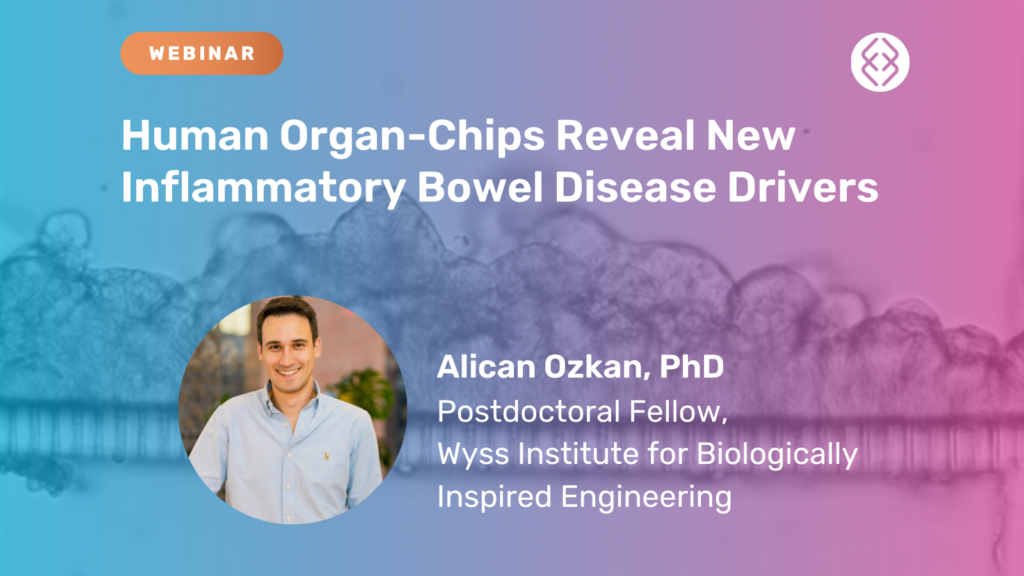Synopsis
In this webinar, Dr. Alican Ozkan from the Wyss Institute discusses how he and his colleagues leveraged human Organ-on-a-Chip technology to model the hallmark features of inflammatory bowel disease (IBD). Using patient-derived colon epithelial cells and matched fibroblasts cultured under flow, the IBD Chips replicated compromised barrier function, decreased mucus accumulation, and heightened risk of inflammation, fibrosis, and cancer—key challenges in IBD patients.
Key highlights from this webinar include how:
- IBD fibroblasts act as primary drivers of multiple disease hallmarks, including inflammation and fibrosis.
- Peristalsis-like mechanical forces heighten inflammation and fibrosis within the IBD Chips, reflecting critical in vivo dynamics.
- Female IBD Chips respond more severely to pregnancy-associated hormones, mirroring clinical observations of aggravated IBD symptoms in pregnant women.
- Carcinogen exposure increases inflammation, gene mutations, and chromosome duplication exclusively in IBD Chips, underscoring the amplified cancer risk in IBD patients.
- The human Organ-Chip system reveals the pivotal role of intestinal stroma and mechanical deformations in driving sex-specific disease progression and provides a robust platform for therapeutic testing.
This recording was originally presented on February 24, 2025, and is based on data from this publication.

